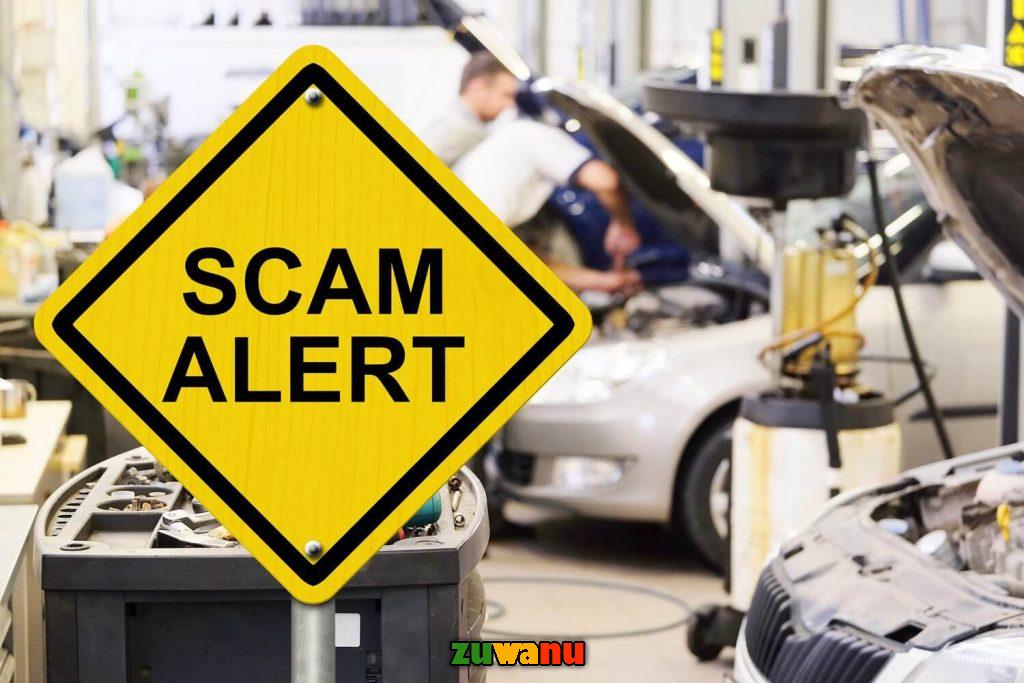How to Avoid Auto Repair Scams in Nigeria

Introduction: How to Avoid Auto Repair Scams in Nigeria
In Nigeria, as in many other parts of the world, owning a vehicle is often considered a necessity rather than a luxury. With the increasing number of cars on the road, the demand for auto repair services has also risen significantly. While there are many reputable and honest auto repair shops in Nigeria, unfortunately, there are also those who seek to take advantage of unsuspecting vehicle owners through various scams. This article aims to shed light on the common auto repair scams in Nigeria and provide a comprehensive guide on how to avoid falling victim to them.
Understanding the Common Auto Repair Scams:
- Unnecessary Repairs and Parts Replacement:
One of the most prevalent scams in the auto repair industry involves mechanics recommending unnecessary repairs or part replacements. Vehicle owners, especially those with limited knowledge about cars, are susceptible to being misled into paying for services and parts that their vehicles do not actually need. - Overcharging for Parts and Services:
Overpricing is another tactic employed by unscrupulous mechanics to exploit unsuspecting customers. This may involve inflating the cost of replacement parts or exaggerating the time spent on repairs to justify higher labor charges. - False Diagnosis:
Some dishonest mechanics may misdiagnose vehicle issues or fabricate problems that do not exist. This tactic aims to convince vehicle owners to authorize unnecessary repairs, leading to higher bills and potential long-term damage to the vehicle. - Used Parts Sold as New:
In an effort to maximize profits, certain auto repair shops may install used or refurbished parts while charging customers for new ones. This not only compromises the quality of the repair but also deceives vehicle owners who believe they are paying for brand-new components. - Bait-and-Switch Tactics:
This scam involves advertising a low price for a particular service and then pressuring the customer into agreeing to more expensive repairs once the vehicle is already in the shop. This tactic preys on the customer’s initial commitment and the inconvenience of having the vehicle already dismantled.
Now that we have identified the common scams, let’s delve into a detailed guide on how to avoid falling victim to these practices:
I. Educate Yourself about Your Vehicle:
a. Regular Maintenance Knowledge:
Understanding the basics of your vehicle’s regular maintenance needs can empower you when dealing with mechanics. Familiarize yourself with the manufacturer’s recommended maintenance schedule for your specific make and model.
b. Learn Basic Car Terminology:
Knowing basic car terminology can help you communicate effectively with mechanics and prevent misunderstandings. This knowledge can also deter dishonest mechanics from taking advantage of your lack of understanding.
II. Research and Choose Reputable Auto Repair Shops:
a. Read Reviews and Ask for Recommendations:
Before selecting an auto repair shop, take the time to read reviews from other customers. Ask friends, family, or colleagues for recommendations based on their positive experiences.
b. Check Accreditation and Certifications:
Look for auto repair shops that are accredited by reputable organizations and display relevant certifications. These credentials can be indicators of the shop’s commitment to professionalism and quality service.
c. Visit the Shop:
Paying a visit to the auto repair shop in person allows you to assess its cleanliness, organization, and overall professionalism. A well-maintained and organized facility is more likely to provide reliable service.
III. Request Written Estimates:
a. Detailed Breakdown of Costs:
When seeking auto repairs, ask for a written estimate that includes a detailed breakdown of the costs for parts and labor. This document can serve as a reference point and prevent unexpected charges.
b. Get Multiple Quotes:
Don’t hesitate to get quotes from multiple auto repair shops for the same service. This not only helps you compare prices but also provides insight into the reasonableness of the estimates.
IV. Ask Questions and Seek Clarifications:
a. Clarify the Diagnosis:
If a mechanic recommends repairs, ask for a clear explanation of the diagnosis. A trustworthy mechanic should be able to communicate the issues in a way that is understandable to the vehicle owner.
b. Inquire about Used or Aftermarket Parts:
If the repair involves part replacements, ask whether the shop uses new, used, or aftermarket parts. Be wary of shops that try to pass off used or substandard parts as new.
c. Understand Warranty Terms:
Inquire about the warranty terms for both parts and labor. A reputable auto repair shop should offer a reasonable warranty on the services provided.
V. Request Old Parts:
a. Insist on Seeing Replaced Parts:
When parts are replaced, ask to see the old ones. This ensures that the shop actually performed the replacements and allows you to verify the condition of the replaced parts.
VI. Be Cautious of Unsolicited Repairs:
a. Avoid Spontaneous Repairs:
Be skeptical if a mechanic recommends additional repairs that were not initially discussed or requested. Request an explanation and, if unsure, seek a second opinion.
b. Get Authorization in Writing:
If additional repairs are suggested, ask for written authorization before the work begins. This can prevent surprise charges and hold the mechanic accountable for the agreed-upon services.
VII. Trust Your Instincts:
a. Pay Attention to Red Flags:
If something feels off or if you encounter pushy and evasive behavior, trust your instincts. Reputable auto repair shops prioritize customer satisfaction and transparent communication.
b. Seek a Second Opinion:
If you are uncertain about a diagnosis or recommended repairs, don’t hesitate to seek a second opinion from another trusted mechanic. This extra step can provide clarity and peace of mind.
VIII. Keep Records of Maintenance and Repairs:
a. Maintain a Logbook:
Keep a detailed logbook of all maintenance and repairs performed on your vehicle. This serves as a valuable reference and documentation, making it easier to track the history of your vehicle’s servicing.
b. Retain Invoices and Receipts:
Keep all invoices and receipts for parts and services rendered. This documentation is essential for warranty claims and can be useful in case of disputes or issues with the repairs.
IX. Stay Informed about Industry Standards:
a. Consumer Protection Laws:
Familiarize yourself with consumer protection laws related to auto repairs in Nigeria. Knowing your rights as a customer can empower you in case of disputes or substandard service.
b. Stay Updated on Industry Practices:
Stay informed about industry best practices, pricing standards, and technological advancements in auto repair. This knowledge can help you make informed decisions and avoid falling prey to scams.
Conclusion:
Avoiding auto repair scams in Nigeria requires a combination of knowledge, diligence, and proactive decision-making. By educating yourself about your vehicle, researching reputable auto repair shops, seeking written estimates, asking questions, and staying vigilant, you can significantly reduce the risk of falling victim to dishonest practices. Remember that communication is key, and a transparent and trustworthy auto repair shop will prioritize your satisfaction and ensure the longevity of your vehicle. As a responsible vehicle owner, staying informed and actively participating in the maintenance and repair process will contribute to a safer and more
reliable driving experience on Nigerian roads.

